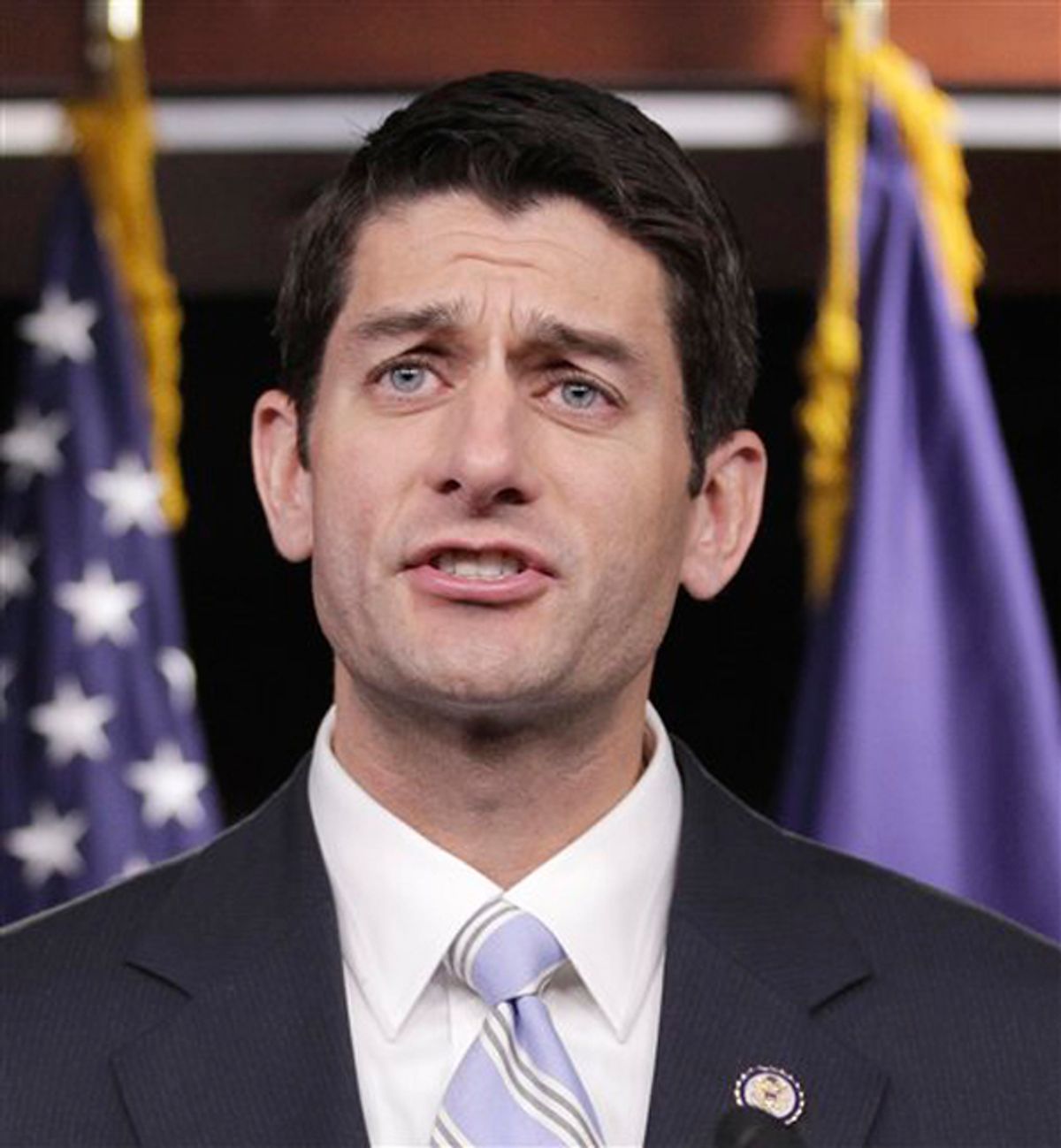This originally appeared at Jared Bernstein's blog, On the Economy
I riffed on the first part of this phony claim by Rep Ryan the other day -- "Our plan is to give seniors the power to deny business to inefficient providers" -- promising to get to the second part -- "…their plan [Affordable Care Act] is to give government the power to deny care to seniors" -- later.
So here goes on the "denying care to seniors" part.
The ACA does nothing of the sort. It was structured precisely to ensure that the fundamental guarantee of Medicare remained in place. This link, from Austin Frakt, provides the details. The punchline is that IPAB -- the Independent Payment Advisory Board created by ACA to control cost growth -- is explicitly not permitted to "…ration health care, raise costs to beneficiaries, restrict benefits, or modify eligibility criteria."
So Ryan is wrong. Full stop.
But there’s more. Understanding this difference provides a useful insight into how healthcare reform under the ACA differs from Ryan’s approach. ACA gets under the hood of the healthcare delivery system to attempt to control healthcare cost growth. Ryan simply shifts cost growth from the government to seniors.
As explained in the link above, the IPAB is a mechanism to control the cost growth of Medicare, to enforce, for example, the cost effectiveness I talk about here. I recognize that one can twist this search for more efficient health care delivery into Ryan's accusation, but there is a fundamental difference between "denying care" and insisting of cost effective care.
There is no insurance system in the world that now or ever could provide anything and everything to everyone who wants it. Every such system is making such decisions all the time as any self-reflection on your own plan, if you’ve got one, will tell you. If it works, the IPAB will force the system to make better decisions.
And if you thing that’s a reach, remember this: every other advanced economy spends one-half to two-thirds what we spend (as a share of GDP) on health care with similar if not superior outcomes.
The fundamental problem here is that arithmetic is unforgiving: if health care spending per person keeps growing a few percent faster than GDP per person, it means that each year we spend a larger share of our national income on health care and less on everything else. And given that half of our health care spending is public spending, in the absence of an IPAB or similar mechanism to break this pattern, we cannot achieve a sustainable budget.
And this is by no means solely a public sector problem. In the private-sector half of our health spending -- outside of M-care and M-Caid -- costs are growing even faster than on the public side. The hope is that efficiencies IPAB identifies in the public sector bleed over (sorry…bad metaphor in this context) to the private.
So Ryan’s mantra is wrong on both the benefits of his plan and the costs of ACA, which is explicitly forbidden to "deny care to seniors." Otherwise, it’s fine.



Shares